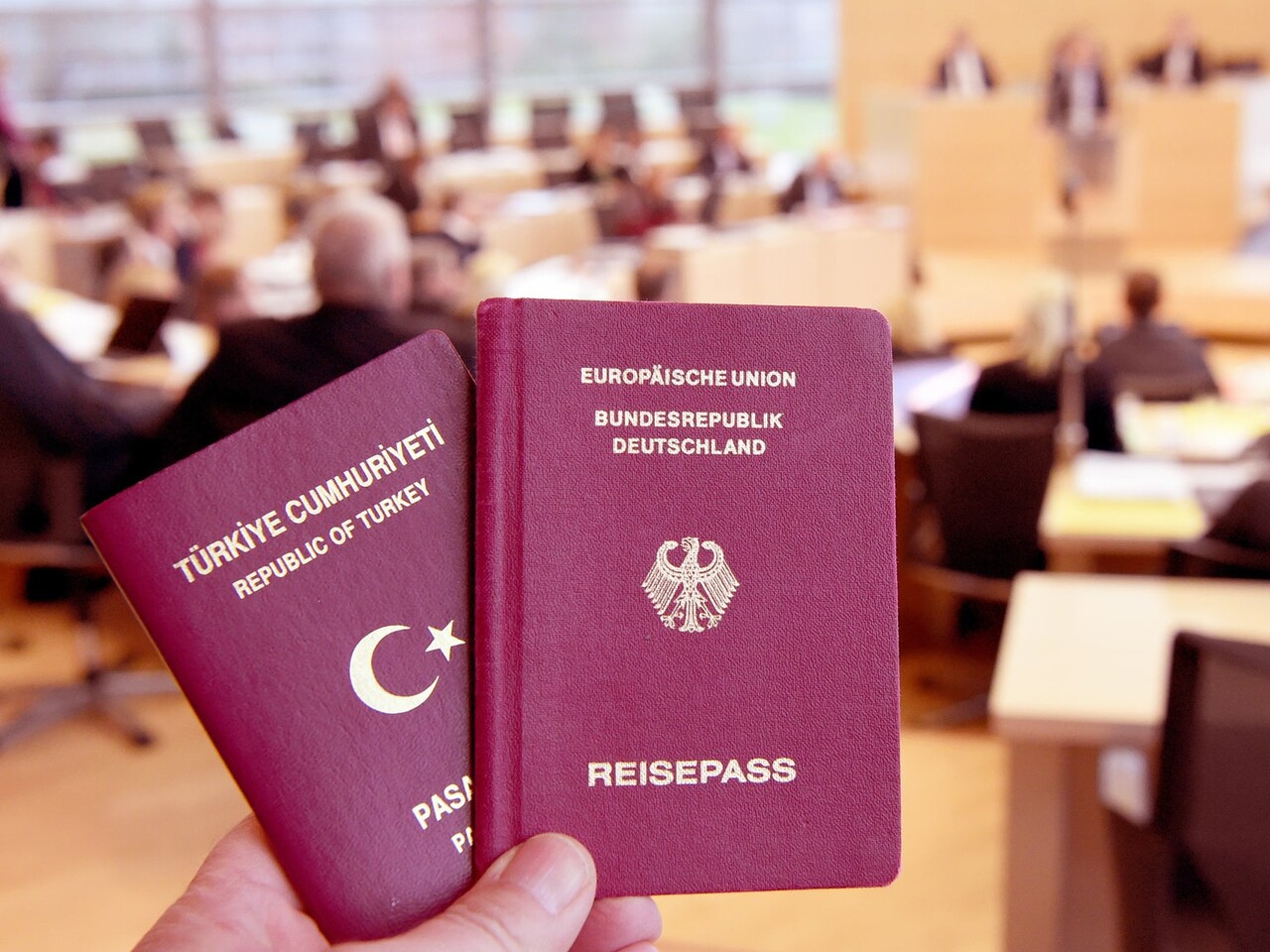Germany opens dual citizenship door for Turkish citizens

Germany’s “Citizenship Modernization Act,” signed by President Frank Walter Steinmeier on March 26, officially takes effect today, following its publication in the official gazette 3 months ago.
The new law aims to simplify transitions to German citizenship and remove barriers to dual citizenship.
How Turkish citizens will benefit from the new law?
- Under the revised legislation, individuals seeking German citizenship will no longer need to relinquish their original citizenship, allowing Turkish citizens in Germany to maintain dual citizenship with Türkiye and Germany simultaneously.
- The residency requirement to qualify for German citizenship has been reduced from 8 years to 5 years. For applicants demonstrating integration into German society through education, professional achievements, volunteer work, or language proficiency, this period can be further shortened to as little as 3 years.
- Children born to at least one parent who has lived in Germany for 5 years will automatically acquire German citizenship.
- The previous “option model,” which forced individuals to choose between their parents’ citizenship or German citizenship by age 23, has been abolished.
What are the requirements including the expected pro-Israel stance?
The law underscores Germany’s historical responsibility, stipulating that individuals engaged in anti-Semitic, racist, xenophobic, or other inhumane actions, or those who reject gender equality, will not be eligible for German citizenship.
Applicants are also required to acknowledge Germany’s unique historical responsibility regarding the illegitimacy of the Nazi regime and its consequences, including the protection of Jewish life.
The Ministry of the Interior has expanded the citizenship test to include questions addressing rising anti-Semitism in Germany, focusing on issues such as anti-Semitism, Israel’s right to exist, and Jewish life within Germany.
Applicants must demonstrate their ability to support themselves and their families without relying on social welfare.
Prospective citizens must prove proficiency in German and pass a citizenship test as part of the application process.
Facilitating the guest worker generation, Under the Employment Agreement until June 30, 1974, with the Federal Republic of Germany (West Germany) and until June 13, 1990, as a contract worker with the former German Democratic Republic (East Germany), written exams and other conditions for citizenship will not apply.

Digital citizenship applications
Engelhardt Mazanke, Director of Berlin’s Migration Office, explained the law’s preparations and considerations for German citizenship applications.
Mazanke highlighted that since January 1, 2024, citizenship responsibilities have shifted from municipalities to the Migration Office, enabling streamlined processes, centralized information, and digitalized procedures.
He emphasized that citizenship applications can now be submitted digitally at any time, offering tremendous convenience to applicants and expediting individual case processing.
Mazanke acknowledged an anticipated increase in applications due to long-awaited political decisions, suggesting initial delays in processing rather than immediate reductions.
He assured the office’s commitment to expedite processes as efficiently as possible, though cautioned against completing all applications submitted this year.
Regarding previous mandatory “information meetings” before applying, Mazanke emphasized streamlined procedures for quicker verification of compliance and expedited submissions.
Berlin’s Turkish community
Mazanke anticipated a significant number of applications from Berlin’s Turkish community.
He projected a substantial increase in citizenship approvals this year, aiming for 20,000 compared to Berlin’s previous year of 9,000, alongside an additional 40,000 previously unprocessed applications from municipalities, and 20,000 new digital submissions.
He emphasized the importance of thorough applications, prioritizing urgent cases where, for example, an individual’s employment as a state employee or teacher depends on obtaining citizenship.
Mazanke advised prospective citizens to first conduct a “Quick-Check” and digitally submit all documents once ready, recognizing uncertainties in processing times due to unpredictable application volumes.



